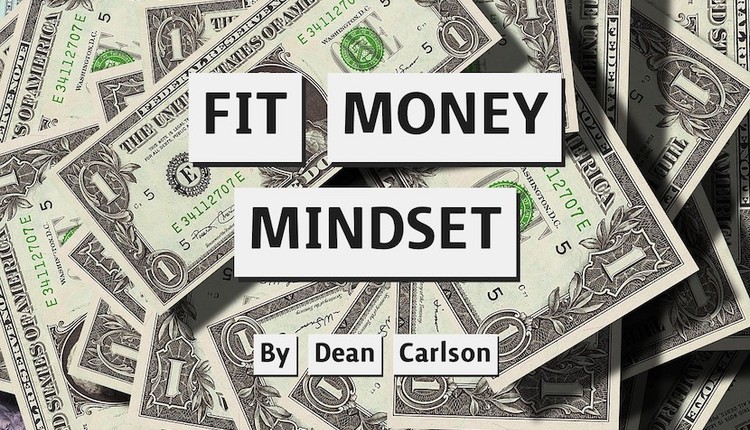The problem with our industry is that your interests don't always (or usually) line up with what your clients are looking for. You may not like what I have to share with you today, but nevertheless it will help you grow your business. To be honest, I don't want to believe it either, but I've found over the years it's a daily uphill battle if you decide to fight it.
As fitness professionals we pride ourselves on our education and dedication to our clients. We truly care about helping our clients achieve their goals. And, unlike most jobs the majority of us seem to love the industry that we work in and the work we do.
However, there is a definite disconnect between what our clients or potential clients think of what we do versus what we actually do in our profession. Like it or not, we are all lumped into one group collectively referred to as "trainers." And as a result, the general public has come to view us in a certain way and look for very specific things that they want us to provide for them.
This is not necessarily a bad thing if you know how to play the game.
So instead of talking in abstracts, I want to give you some concrete examples of what many potential clients are looking for from you and from a new training program. (Keep in mind you may not like these statements below, but that doesn't make these any less true)
1. Clients are attracted to personal trainers that "look the part." This means they want their trainer to be in better shape than they are and potentially in better shape than all the other CPTs in the gym. If you aren't in shape yourself you may never be taken seriously by new prospects.
2. Quiet and reserved personal trainers are often viewed as unconfident and lacking education. Remember, potential clients are watching you while you're training other clients in the gym and it does help to walk, talk, and act with confidence.
3. Non-fitness professionals view new exercises they have never seen before as being better than any other "old" exercise, and they're attracted to programs or trainers that can provide them with the newest shiny exercise. For example, if doing barbell back squats is good, then in their mind clearly doing the same exercise while wearing a weighted vest and standing on a stability ball must be better.
4. Just because you have the education, a certain segment of the population doesn't seem to give you the same credit as someone who has less continuing education, but has more certifications (even if they only took a day to get them). This is why I don’t believe getting more certifications makes you any better of a trainer, but it does help you increase "status."
5. There is also a huge grouping of potential clients that doesn't care what organization you were trained through or even what you've studied. They simply don't know what NASM, ACSM, NSCA or any other organization's initials mean. What they do care about is an impressive collection of before and after success stories.
6. Other potential clients could not care less how educated you are if you look very young. They assume you can't relate to them and therefore won't be able to help them achieve their goals. In these cases I find it is imperative to constantly reinforce your education level by using the actual exercise physiology terms and then explaining in to them in layman terms what they're doing. This helped me when I was starting out at 18 years old and has helped my team members overcome their older population client concerns.
7. There will always be a fraction of the general public that buys strictly based on price. Many of them will be your small group or bootcamp clients. Money is the biggest concern and they are willing to work with a trainer with less experience and expertise because of price -- Never get discouraged by this or get into a price reduction competition. On the flipside, for the great majority of the public price determination is only based off of perceived value. There are fitness professionals charging $400 an hour because their clients believe they are getting at least $400/hr. in value. Never sell yourself short because you only believe the market allows you to set your fee at a certain dollar amount.
There are many more reasons why potential clients buy, but the point is that you cannot change their initial mindset when you haven't even met with them yet. You must understand what truly motivates them and how they select a "trainer" to work with. Once you master their inner mind game you will know what hot buttons to use in your explanation of your services, credentials, and previous success stories.
In the end this will lead to a greater inflow of leads, a higher conversion rate, and happy clients that continue to train with you longer!
As fitness professionals we pride ourselves on our education and dedication to our clients. We truly care about helping our clients achieve their goals. And, unlike most jobs the majority of us seem to love the industry that we work in and the work we do.
However, there is a definite disconnect between what our clients or potential clients think of what we do versus what we actually do in our profession. Like it or not, we are all lumped into one group collectively referred to as "trainers." And as a result, the general public has come to view us in a certain way and look for very specific things that they want us to provide for them.
This is not necessarily a bad thing if you know how to play the game.
So instead of talking in abstracts, I want to give you some concrete examples of what many potential clients are looking for from you and from a new training program. (Keep in mind you may not like these statements below, but that doesn't make these any less true)
1. Clients are attracted to personal trainers that "look the part." This means they want their trainer to be in better shape than they are and potentially in better shape than all the other CPTs in the gym. If you aren't in shape yourself you may never be taken seriously by new prospects.
2. Quiet and reserved personal trainers are often viewed as unconfident and lacking education. Remember, potential clients are watching you while you're training other clients in the gym and it does help to walk, talk, and act with confidence.
3. Non-fitness professionals view new exercises they have never seen before as being better than any other "old" exercise, and they're attracted to programs or trainers that can provide them with the newest shiny exercise. For example, if doing barbell back squats is good, then in their mind clearly doing the same exercise while wearing a weighted vest and standing on a stability ball must be better.
4. Just because you have the education, a certain segment of the population doesn't seem to give you the same credit as someone who has less continuing education, but has more certifications (even if they only took a day to get them). This is why I don’t believe getting more certifications makes you any better of a trainer, but it does help you increase "status."
5. There is also a huge grouping of potential clients that doesn't care what organization you were trained through or even what you've studied. They simply don't know what NASM, ACSM, NSCA or any other organization's initials mean. What they do care about is an impressive collection of before and after success stories.
6. Other potential clients could not care less how educated you are if you look very young. They assume you can't relate to them and therefore won't be able to help them achieve their goals. In these cases I find it is imperative to constantly reinforce your education level by using the actual exercise physiology terms and then explaining in to them in layman terms what they're doing. This helped me when I was starting out at 18 years old and has helped my team members overcome their older population client concerns.
7. There will always be a fraction of the general public that buys strictly based on price. Many of them will be your small group or bootcamp clients. Money is the biggest concern and they are willing to work with a trainer with less experience and expertise because of price -- Never get discouraged by this or get into a price reduction competition. On the flipside, for the great majority of the public price determination is only based off of perceived value. There are fitness professionals charging $400 an hour because their clients believe they are getting at least $400/hr. in value. Never sell yourself short because you only believe the market allows you to set your fee at a certain dollar amount.
There are many more reasons why potential clients buy, but the point is that you cannot change their initial mindset when you haven't even met with them yet. You must understand what truly motivates them and how they select a "trainer" to work with. Once you master their inner mind game you will know what hot buttons to use in your explanation of your services, credentials, and previous success stories.
In the end this will lead to a greater inflow of leads, a higher conversion rate, and happy clients that continue to train with you longer!
Stephen Cabral has consulted for MTV, Maxim, Men's Health, NutritionData, SELF, Women's Day, as well as dozens of others. He was named the PFP 2011 Trainer of the Year. He is also a fitness writer, author, studio owner, and the founder of Personal Training Business School. His free fitness business video series, proven strategies and tips can be found athttp://PersonalTrainingBusinessSchool.com












